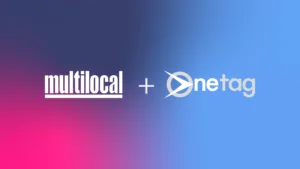Ahead of the Trinity Lunch Winter 2023, we caught up with Jack Green, Director of Business Development, Wunderkind to find out why he is looking forward to the event and what topics he expects to be the big talking points on the day.
Is this your first Trinity Lunch event and what do you expect from the day?
This marks my fourth Trinity event, and I must say, the NDA team consistently put on an exceptional afternoon. I’m eagerly anticipating the opportunity to reconnect with friends, former colleagues, and clients.
From conversations and presentations you’ve seen and been part of, what is the industry talking about right now?
The synergy between digital advertising and ecommerce is a huge topic. Adtech solutions that enable seamless integration between online advertising and ecommerce platforms are gaining attention, as advertisers look for ways to drive sales directly from ads and publishers look for new revenue streams.
The pursuit of capturing attention has long been a challenge in advertising, marked by its intricate nature that has yet to yield a definitive industry benchmark. However, recent trends showcase a surge in advancements aimed at addressing attention and what these metrics should look like. Certain ad formats, particularly those integrating seamlessly with user experience, have proven more successful with publishers.
The industry is always looking for innovative ad formats to capture user attention. This includes the exploration of interactive and immersive ad experiences. The shift towards more interactive ad experiences involves experimenting with formats that prompt user engagement. The goal here is to move beyond the passive viewer model, inviting users to actively participate and engage with brand messaging.
If you were to highlight three topics as being most important to your partners and clients, what would they be?
Advertisers in the UK are increasingly prioritising sustainability and social responsibility in their strategies. Beyond merely selling products, brands are emphasising ethical and environmental practices. The industry as a whole is collectively reevaluating itself to minimise its environmental impact. This involves optimising ad delivery, reducing unnecessary data processing, and adopting energy-efficient technologies.
The integration of AI for targeting, ad optimisation, and personalisation is a hot topic. Advertisers are keen on leveraging these technologies to elevate campaign performance and boost user engagement. It’s widely acknowledged that agencies and publishers embracing AI won’t automatically win, but those neglecting these technologies risk losing ground in this highly competitive landscape. The adaptation to AI isn’t just an option anymore; it’s increasingly becoming a necessity for staying competitive.
Advertising budgets tend to be among the first casualties during an economic downturn. Clients are grappling with the challenge of sustaining impactful advertising campaigns while facing potential budget constraints due to the economic uncertainties. Balancing the need for brand visibility with cost-effective strategies becomes paramount in such situations.
Is the digital marketing industry ready for the ‘cookieless’ era?
More than half of the UK population are already within cookieless environments so I would argue that the cookieless era is already here! Success in this new landscape depends on the growth of first party data sets and combining AI to optimise to outcomes.
Amidst these ongoing changes, it’s crucial to focus on the ultimate goal – the end product. The key lies in striking a balance between sophisticated technology and an emphasis on the end-user experience to make a meaningful impact. Effectively standing out in the crowd requires not just advanced technology but also clean and visually appealing ad experiences.








